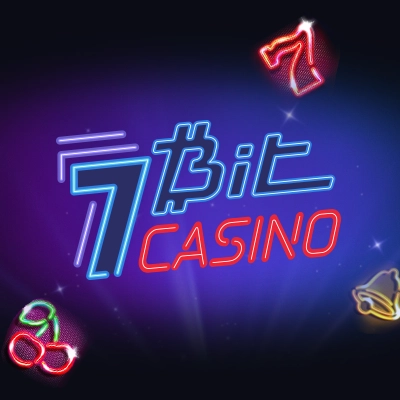How are online slots tested for fairness?

More experienced players may remember stories of “rigged” land-based slots in casinos, arcades, and bars. These games could be manipulated by the owner, and there are similar concerns about unlicensed and untested online casinos.
That’s why sticking with licensed slot sites is so important. There’s no meddling and no tricks. Regulated developers launch thousands of new online slots every year, and each one undergoes a long and methodical process, beginning with brainstorming and advancing to testing before the real work begins.
They must then make sure it’s fair and meets strict regulations.
Game testing
Spend enough time in online casino communities and you’ll encounter your fair share of disgruntled players and their unhappy stories. They’ll tell you of the time they hit a lucky streak, before the casino pressed “the button” to reverse their fortunes and tank their balance.
There is no such button. In fact, casinos can’t influence the result. They don’t even make the games.
Third-party developers create the games, implement fair mechanics, measure the RTP, and then release them to casino partners. All legitimate developers and casinos are licensed, so when you play an online slot, you can guarantee it has undergone a strict testing process.
The online slots testing process has several phases:
In-house slots testing
Slot testing begins with the creation of a mathematical model, which defines the outcomes and probabilities.
The developers then implement a random number generator (RNG). This generates long sequences of random numbers, each tied to a specific outcome. The slot continuously runs through these numbers, stops when the player hits “spin”, and then displays the predetermined outcome.
Using millions of simulated spins, developers calculate the total wagers and winnings to arrive at the RTP. So, €/$100,000 in wagers returning €/$96,000 in winnings equates to 96%. The final in-house step is to hire testers from platforms like Applause and UberTesters, who test the game’s features, quality, and localization.
Independent slots testing
Third-party verification organizations like iTech Labs, Gaming Laboratories International (GLI), and eCOGRA confirm that the developers have done their job and the game is fair using a process that includes the following steps:
- Play testing online slots: Millions of simulated plays test the accuracy of RNG and mathematical models.
- Outcomes: Calculations measure actual outcomes vs stated ones.
- Max win: The agency tests that the stated max win (based on a fixed limit for games with expanding reels and set to the highest feature/symbol wins for others) is attainable.
- Randomness: If the RTP is properly programmed, it cannot be influenced by previous spins or bet sizes. Testing agencies confirm this during simulated plays.
- Functionalities: They check that all features work correctly (including everything from the payline setup to the Free Spins) and are compatible across various platforms.
These “test houses” must be approved by applicable regulators, with agencies like eCOGRA and GLI leading the way, as they are approved by multiple regulators, including the Malta Gaming Authority and UK Gambling Commission.
RNG explained
RNG technology ensures that every slot outcome is fair, independent, and can’t be manipulated by the player or casino. In simple terms, it’s like assigning numbers 0-9 to specific outcomes, rolling a bucket of dice, adding the total, and then using the final number to determine the outcome. The difference is that it’s 100% simulated, automatic, and random, with the RNG running through millions of calculations as you spin.
What players expect
“If you stick with licensed casinos, you’ll only play licensed games, so there is no risk of manipulation, and every outcome is random and fair.”
Players expect that the games they play are fair, and the rigorous testing process outlined above guarantees that.
If you stick with licensed casinos, you’ll only play licensed games, so there is no risk of manipulation, and every outcome is random and fair.
For example, GLI reportedly tested 200 crypto casinos in June 2025, and found that 51% of them changed RTPs at peak times to increase profits. At a licensed casino, the strict regulations, trusted third-party partnerships, and looming threat of audits mean the RTP you see is the RTP you get.
Industry integrity
The integrity of the online casino sector relies on its visibility. Players don’t just want to be told that slots are fair; they need to see it for themselves. Fortunately, as the industry grows and explores new technologies, fairness and transparency remain at the heart of everything they do.
Testing agencies like eCOGRA are very open about their RNG testing procedures, and if you check the licensing sections on casinos/developer sites, as well as the game menus in slot machines, you’ll see data confirming testing agencies and processes, as well as max wins, RTPs, and volatility.
This industry needs to be squeaky clean to maintain player trust, and it’s succeeding.
Regulators’ role
As you would expect, regulators have strict requirements when it comes to validating the fairness of a particular game.
Many regulators have their own approved lists of independent auditors, and developers must use one of these during the external testing phase. Their RNGs also need to be certified by recognised bodies, and regulators ask that developers and casinos comply with regular audits.
These audits confirm that previously verified RNGs continue to operate fairly and without manipulation. If there are any failings in these areas, regulators have the power to impose substantial fines and even revoke licences.
It’s rare for a casino licensed by a major regulator (including authorities in the UK, Malta, Curacao, and Gibraltar) to lose its licence for unfair practices, mainly because the process of creating, implementing, and testing RNGs is so rigorous that nothing slips through the net.
When licences are suspended, it’s usually because the company broke advertising regulations or was deficient in its handling of anti-money laundering procedures.
Final words on the online slot testing process
Provided you stick with licensed casinos, there is no risk of game manipulation. Every stated metric – including the RTP, volatility, max win, and hit rate – has been meticulously calculated using a lengthy process of in-house and external checks.
There’s a lot of maths involved, as well as countless simulated gaming sessions, but the end result is that players can enjoy licensed online slots with complete confidence.









